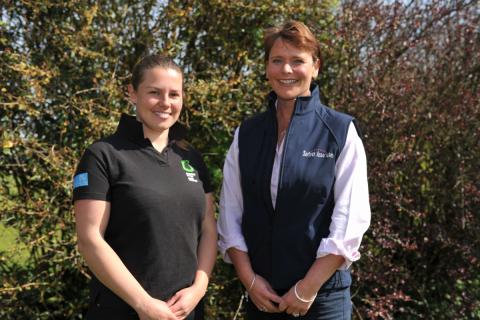During a series of joint Farming Connect and AHDB Dairy meetings across Wales, facilitated by Jamie McCoy, Dairy Technical Officer at Farming Connect, it was calculated that the cost of replacing a staff member in a £30,000 a year role can be up to £60,000; this accounts for loss of knowledge, existing employee time to cover work in the staffing gap and recruiting and training a replacement.
As farm businesses in Wales grow in scale, more responsibility is delegated to staff but attracting and retaining good employees is a major challenge.
Heather Wildman, of Saviour Associates, advised farmers to share their business vision, goals and key performance indicators (KPIs) and to give staff clear roles and responsibilities.
She suggested a three-tier employee structure, although this is influenced by the scale of the business.
The initial tier is for staff involved in day to day activities and the second for those with tasks and responsibilities that require longer term planning, such as pasture rotation.
Mrs Wildman recommended a top tier for staff engaged in strategy planning, genetics protocols, crop management and other over-arching duties.
“A tiered system allows everyone to know what is expected of them and, if people in that team are ambitious, they know what is required to get to the next level.’’
Mrs Wildman recommends detailing procedures and protocols in a staff handbook.
Appropriate training is beneficial to the employer and employee. Farm workers are often highly skilled and experienced but continual work-related training and development opportunities can be highly motivational.
With appropriate training, employees can be empowered to do a better job. “If an employer is willing to invest in training it makes staff feel valued, it is telling them you want them to be part of the business long term and you want them to take on more ownership, feel pride and do a top job,’’ said Mrs Wildman.
“Employees value the consideration that is given to improving their skillset and farmers get better equipped employees. It is definitely worth the financial investment.’’
Every farm should have clear business goals that are shared with staff. “Increase the involvement of staff in decision making and show trust by delegating responsibility,’’ said Mrs Wildman.
“When and where applicable do everything you can to make sure staff have the information, tools and experience that they need to run the business without you physically being there.’’
A willingness to be flexible is important. “Some farmers can be control freaks but if an employee does something in a different way to the one you have suggested, if the results are the same it should not matter,’’ insisted Mrs Wildman.
“Give staff opportunities to succeed and give credit and praise, we don’t praise enough.’’
Regular meetings are important, either formal or informal. “There must be clear and continuous communication, either one to one or in groups. I don’t believe there is a text book way to communicate, it is whatever works for the business,’’ said Mrs Wildman.
The dynamics can change when a new employee joins the business but ensuring that they spend time working with all staff members makes integration easier and quicker.
Ms McCoy encouraged farmers to keep up to date with the Farming Connect events calendar. “Consider not only what you would be interested in attending but what you staff would gain from attending meetings,’’ she said.

